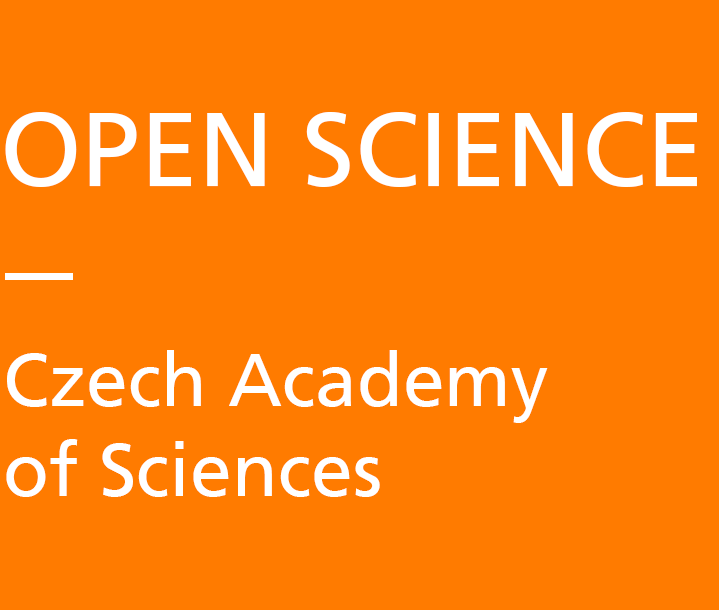An important and indispensable role in the implementation of Open Science is played by internal thematic policies and related conceptual materials of the research institutions.
These materials may have different levels of generality and different purposes. Each of these documents fulfils its function in transforming scientific practice towards greater openness, ease of replication, verifiability and reusability.
Czech Academy of Sciences
At the end of 2024, the Czech Academy of Sciences approved a new strategic document, the Open Science Principles of the Czech Academy of Sciences, which provides a fundamental framework and recommendations for implementing the principles of open science across CAS institutes.
The Principles of open science state, among other things:
Through its institutes, the CAS has long been building and implementing open access to scientific information, generally in compliance with the standards of scientific integrity. The CAS sees this as a path to higher quality, transparency, sustainability and reproducibility of research. The CAS also welcomes the fact that the sharing of scientific data and other digital objects in accordance with the FAIR principles (Findable-Accessible-Interoperable-Reusable) is becoming a new reality and standard in research.
The CAS subscribes to the Open Science principles in accordance with the commitment to the widest possible dissemination of the results of professional research and in accordance with the UNESCO recommendation and the embedding of Open Science in national, European and international science policy.
The document addresses open access to scientific publications and recommends that they are made available through open repositories or by publishing in open-access journals. An importantn part of the document is the support of the management and sharing of research data in line with the FAIR principles, ensuring that data is easily findable, accessible, interoperable, and reusable.
The Principles also emphasize the importance of using open software and other tools that facilitate scientific work and enable broader collaboration. Education in the area of open science plays a key role, ensuring that researchers and other stakeholders understand its benefits and can effectively integrate it into their activities.
The document emphasizes that the principles of open science should become a part of institutional strategies and practices across CAS institutes.
The need for greater openness in science, including broader access to scientific results and data, is also mentioned in the Code of Ethics for Researchers of the CAS that states, among other things, the following:
A researcher: when publishing findings and results on a particular problem, is responsible for their completeness and verifiability and interprets them without bias; after publication, retains primary data and documentation of all significant results for the period of time customary in the relevant discipline, unless prevented by other obligations or regulations; publishes with the aim of communicating results and findings to the scientific community, not merely to report work as scientific output.
Documents at institutes of the CAS
Besides these documents at the level of CAS, individual institutes have their own thematic policies and related conceptual materials.
There are three basic types of these documents:
- Internal policies, by which departments declare (internally, but also externally) their decision to pursue a desired practice across their research teams. These documents often also serve as a kind of reference for the credibility of the researchers’ promised practice of implementing Open Science practices when submitting individual projects.
In developing this type of document, inspiration can be drawn from the template created by OpenAIRE „Model Policy on Open Science for Research Performing Organisations„. (The form of this template is based on recommendations from various institutions: UNESCO Open Science policy development process, the UNESCO Open Access policy development guidelines, the MedOANet guidelines for Open Access, the PASTEUR4OA Toolkit and Policy Guidelines, the RECODE project policy recommendations for Open Access policies to research data, the LEARN project Model Research Data Management Policy, a SPARC Europe report on Open Data and Open Science policies in Europe.)
The above mentioned document Open Science Principles of CAS also states:
The management of the CAS calls upon research-oriented institutes of the CAS to consistently implement the Open Science principles and reflect these principles in their internal regulations.
These internal documents of individual institutes should be tailored to reflect the requirements and specificities of their respective fields.- Examples from the CAS
- Other exapmles from the field of academic self-government
- Charles University Research Data Policy (Charles University)
- Strategic documents, a kind of roadmap, describing how the centres plan to transform current practice and achieve the desired state, i.e. in our context more open science, greater accessibility of publication results, more systematic management of research data, etc. Depending on the timeframe addressed by these documents, we can distinguish between longer-term, general strategies and follow-up implementation documents aimed at shorter period – the so-called action plans. Implementation documents are characterised by a detailed elaboration of the necessary activities – i.e. what needs to be done in individual sub-steps, with a clear definition of the responsibilities and roles of specific staff, planned financing and, last but not least, the setting of deadlines and performance indicators.
When creating this type of document, it is possible to draw inspiration from templates and methodological materials of the state administration and local governments – for this purpose, the Ministry for Regional Development operates the Portal of Strategic Work in the Czech Republic.- Examples from the CAS
- Other examples from the field of academic self-government
- Open Science MU Strategy 2022-2028 (Masaryk University)
- Open Science MU Strategy Action Plan 2022-2024 (Masaryk University)
- Methodological materials – the very practical (operational) level of management – orders of department directors and other forms of internal regulations defining in detail how to proceed – for example, when publishing results or handling research data.
- Examples from the CAS
- Other examples from the field of academic self-government
- Guidelines for the safe handling of research data (Charles University)
In July 2023, we asked the institutions of the CAS to share the good practices that we have been trying to communicate since then. We are also trying to connect those responsible for this issue across departments so that good practice can be replicated and synergies can be achieved. It can be noted that the approach to the issue varies considerably, mainly according to the specifics of the disciplines and the capabilities of individual departments.
CAS and related international declarations, coalitions and initiatives
- Berlin Declaration on Open Access to Knowledge in the Sciences and Humanities (2003 – AV ČR joined in 2008)
- Open Science for the 21 st century – A declaration of ALL European Academies (2012 – AV ČR is memeber)
- Expression of Interest iniciativy OA2020 (2016 AV ČR joined in 2016)
- Coalition for Advancing Research Assessme (COARA) (2022 – AV ČR joined 2022)
Last updated on July 22, 2025


